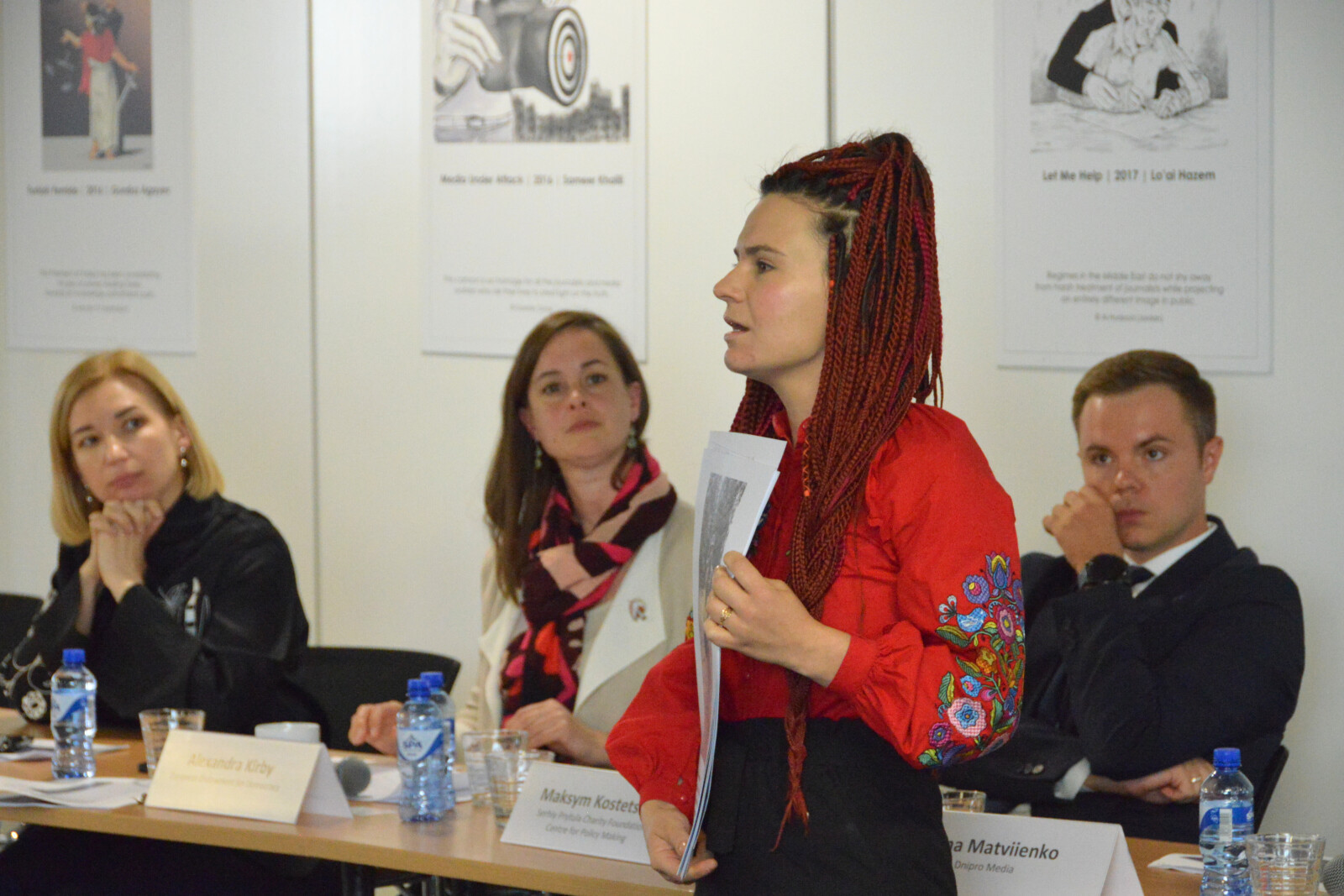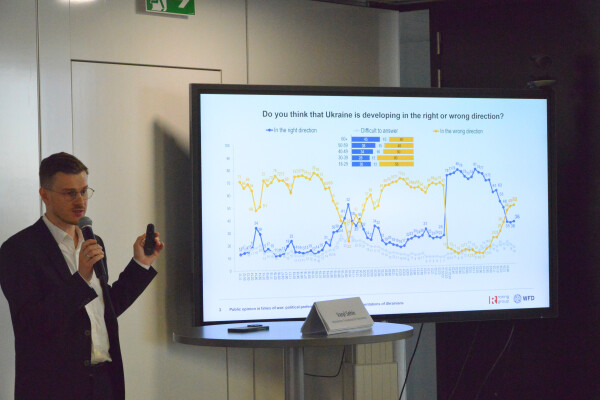
Despite the extraordinary pressures of ongoing war and the constraints of martial law, Ukraine continues to demonstrate remarkable democratic resilience, with civil society playing a pivotal role in safeguarding institutional integrity and driving reform, according to discussions at a recent event held in Brussels co-hosted by the European Endowment for Democracy (EED) and Westminster Foundation for Democracy (WFD).
This is a conclusion confirmed by WFD’s public opinion research, which consistently shows strong support for democracy in Ukraine, with at least two-thirds of Ukrainians reporting it essential that Ukraine becomes a fully-fledged democracy.
This EED-WFD event brought together policymakers, academics and civil society representatives to help deepen the understanding of how Ukraine’s democratic trajectory can be best supported during wartime and beyond and to contribute to shaping smarter and more targeted support to Ukraine to ensure it can succeed as a vibrant and functioning democracy. The event was opened by Katarína Materhnová, Ambassador of the EU to Ukraine, who highlighted the continued commitment of Ukrainians to defending their democracy.
The 'Cardboard Revolution': Civic Power in Action
In July 2025, in a striking display of democratic vigilance, Ukrainians took to the streets in a ‘cardboard revolution’. Protests erupted after Parliament passed Law No. 12414, which threatened the independence of two crucial anti-corruption institutions: the National Anti-Corruption Bureau (NABU) and the Specialised Anti-Corruption Prosecutor's Office (SAPO), a move that drew sharp criticism from the EU.
The response was swift and decisive. Young Ukrainians, alarmed about institutional integrity and their country's democratic trajectory, organised mass demonstrations. The sustained public pressure proved effective. Within two weeks, Parliament passed another piece of legislation, Law No. 13533, restoring the agencies' autonomy.
Panellists noted that citizens' reaction to the attacks on anti-corruption infrastructure reflects Ukrainians' profound democratic appetite and a commitment to dignity, freedom, and shaping their own future despite the ongoing challenges of war.
War as a Catalyst for Civic Engagement
Panellists noted that the war has fundamentally reshaped Ukrainian society, which is now considerably more active and engaged than previously. Citizens are taking greater responsibility for their communities and are demonstrating agency in addressing both local and national challenges despite martial law constraints.
Citizens are looking for new ways to express their political agency, and a sustained democratic trajectory will require the development and strengthening of democratic institutions.
According to recent WFD research, the four most trusted institutions in Ukraine are: the Armed Forces, organisations run by volunteers, veterans, and civil society. These actors have been instrumental in providing essential services, mobilising resources, coordinating humanitarian assistance, and supporting internally displaced persons while advocating for transparency and accountability.

Trust Deficit and Institutional Challenges
Significant challenges remain, when it comes to trust in state institutions. According to WFD’s research, the three least trusted institutions in Ukraine are courts, political parties, and the Verkhovna Rada or parliament. 78% of Ukrainians feel they have little to no influence over political decision-making at a national level, with similar sentiments (68%) at a local level.
The centralisation of power by the President's Office has weakened Parliament and contributed to a crisis of confidence on the part of citizens. Only 2% of Ukrainians believe politicians represent their interests.
EU Accession: A Democratic Anchor for Ukraine’s future
As uncertainty prevails regarding the war's trajectory, Ukraine's EU accession path offers both hope and structure. Panellists emphasised leveraging the EU accession roadmap to draft and implement reforms, using the momentum created to advance critical changes.
They view the EU accession process as the primary mechanism to safeguard democracy, combat corruption, and implement reforms across key sectors, including the justice system. They believe that the EU accession process provides the structure, incentives, and accountability needed to sustain Ukraine’s democratic trajectory.
Opening EU accession clusters is particularly important in maintaining momentum on essential reforms in public administration, judicial reform, and anti-corruption measures.
Panellists referred to the protection of citizens’ data in the roadmap of the EU accession process. They stated that this is vital in the Ukrainian context, noting that 59% of Ukrainians are using Telegram channels as their main source of information, despite security concerns about Russian ties. Implementing EU-style data protection laws could help safeguard citizens, enhance privacy, and reduce risks posed by disinformation and online harassment.
Looking Ahead: Veterans and Post-War Democracy
Panellists noted that in the event of post-war elections, pre-election security assessments will need to be held in each locality, and mechanisms will need to be put in place to safeguard elections, and to ensure they can be held in all territories.
In the WFD research, a large majority of Ukrainians support war veterans running for elections after the war’s end. Respondents perceive veterans as having sacrificed their lives to protect Ukraine. However, they don’t believe experience in the military alone makes veterans qualified for political leadership. They should also have relevant education, experience and high levels of integrity. The majority of Ukrainians remain opposed to the establishment of a military dictatorship.
Key messaging from panellists: